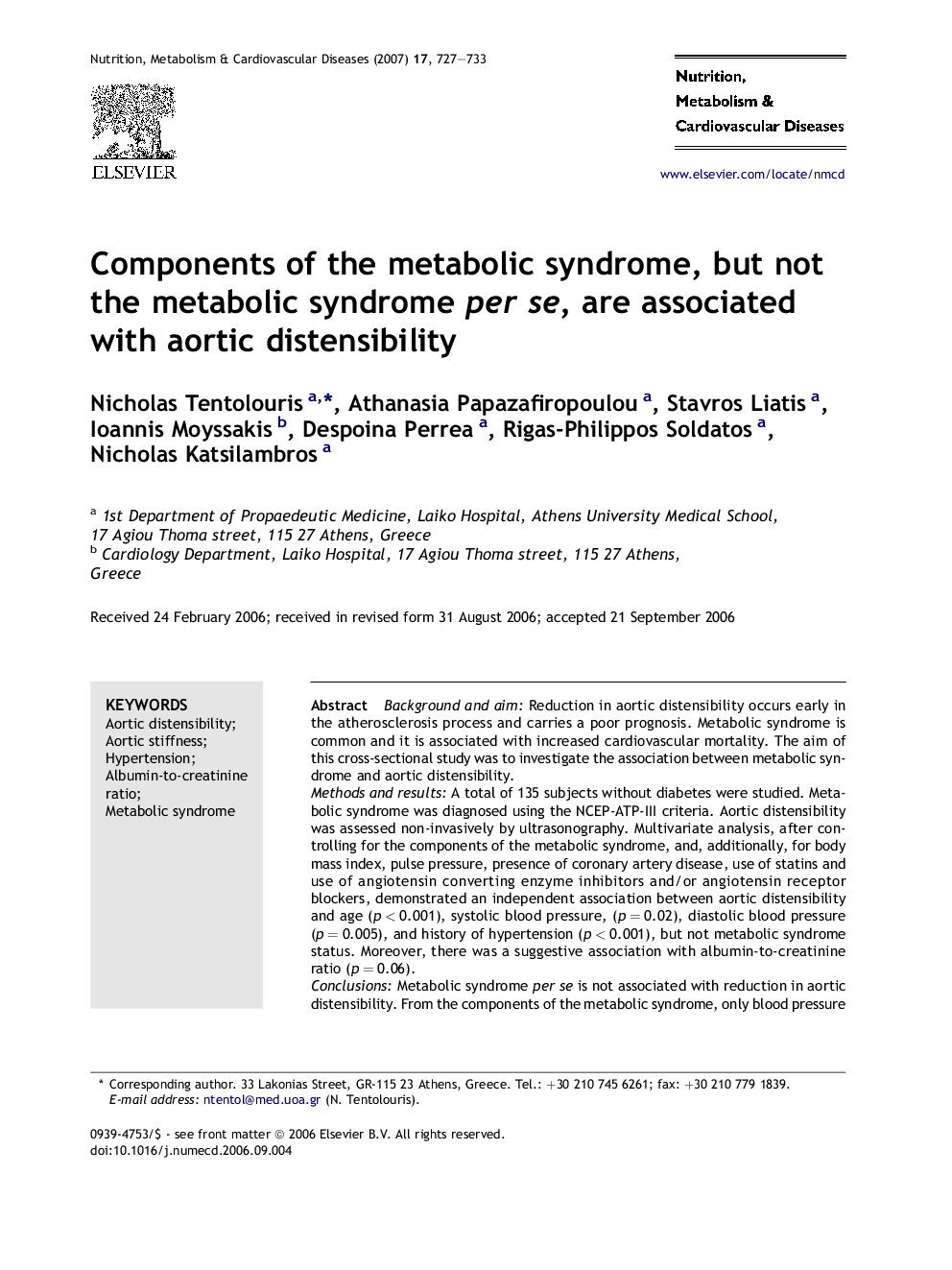| Article ID | Journal | Published Year | Pages | File Type |
|---|---|---|---|---|
| 3003174 | Nutrition, Metabolism and Cardiovascular Diseases | 2007 | 7 Pages |
Background and aimReduction in aortic distensibility occurs early in the atherosclerosis process and carries a poor prognosis. Metabolic syndrome is common and it is associated with increased cardiovascular mortality. The aim of this cross-sectional study was to investigate the association between metabolic syndrome and aortic distensibility.Methods and resultsA total of 135 subjects without diabetes were studied. Metabolic syndrome was diagnosed using the NCEP-ATP-III criteria. Aortic distensibility was assessed non-invasively by ultrasonography. Multivariate analysis, after controlling for the components of the metabolic syndrome, and, additionally, for body mass index, pulse pressure, presence of coronary artery disease, use of statins and use of angiotensin converting enzyme inhibitors and/or angiotensin receptor blockers, demonstrated an independent association between aortic distensibility and age (p < 0.001), systolic blood pressure, (p = 0.02), diastolic blood pressure (p = 0.005), and history of hypertension (p < 0.001), but not metabolic syndrome status. Moreover, there was a suggestive association with albumin-to-creatinine ratio (p = 0.06).ConclusionsMetabolic syndrome per se is not associated with reduction in aortic distensibility. From the components of the metabolic syndrome, only blood pressure is a strong predictor of aortic distensibility. In addition, ageing and higher values of albumin-to-creatinine ratio are also associated with low aortic distensibility.
